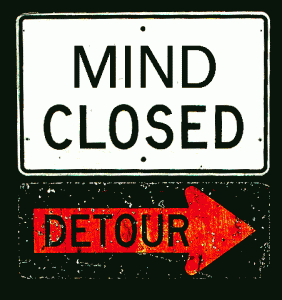A Nobel Prize-winning economist named Daniel Kahneman has spent years studying the psychology of decision-making. He published a summary of his research called “Thinking, Fast and Slow” about five years ago, in which he demonstrated that people simplify their thought process by applying various biases. In other words, our biases help us make judgments. My first reaction was that most of us already knew that, even without a Nobel Prize.
I ran across the reference in an interesting place, though — the Independent Institute’s book, “Nature Unbound: Bureaucracy vs. the Environment.” It is a fascinating analysis of how often today’s bureaucratic procedures for environmental enforcement are actually bad for the environment. Too often, the incentives are all wrong, based on a punitive approach that often discourages helpful land management practices, and costs fortunes that could have been spent improving the environment.
The use of Kahneman’s research in this context is fascinating. You see, Kahneman identified a number of specific biases that inform the human decision-making process. One of the most common and powerful is the “cognitive bias toward the present.” That helps explain why so many people resist change. But it also explains something very important in understanding bureaucracies. It is described as a process in which the mind “discounts the unavailability of information.” Meaning people tend to ignore the fact that they do not have all the facts. Kahneman writes so extensively about that particular problem that he gave it an acronym: WYSIATI, which stands for “what you see is all there is.” If I don’t know any other information, I will pretend there isn’t any.

As the theory goes, our environmental enforcement systems are almost all centralized, mostly in the national government in Washington — even though most understanding of the natural environment is decentralized among a diverse population scattered throughout the country. People who live, play, work, and raise families in particular areas inherently know their areas and understand their local environments better than distant officials in Washington. But those officials are almost incapable of considering the vast array of knowledge they do not have. Many of them even grow to distrust locals, and to believe local people would destroy their own environment is given half a chance. We have been frustrated and offended by that bias for years, but it turns out that it may come not from any evil intentions, but simple human nature.
In creating this Washington-centered approach to almost everything, Congress has always assumed decisions should be based on the best possible information, so the smartest people should be hired to run things. That sounds right at first, but it assumes the smartest people can actually be found and hired. The problem is that many federal agencies are so large, and their jurisdictions so broad, that there is no person smart enough to know everything that must be known to run them.
The Interior Department, for example, has 70,000 employees in charge of everything from parks and wildlife to oil, gas, mining, geology, the global climate, weather, electric power generation, hydrology, real estate management, wildfire, and Native American history. That just barely scratches the surface. Since nobody is smart enough to know all that, it goes without saying that managers delegate decisions to people far down the ladder, and assume those lesser officials know what they are doing. In other words, no one can ever really be in charge. Should we realistically expect otherwise?
What is most frustrating about this centralized approach to environmental decision-making is that it creates conflict. Almost all environmental issues – clean air, clean water, endangered species, forest management, public lands, climate change – have become contentious and divisive, unnecessarily. A new way to deal with these issues might involve decentralizing much of the decision-making, delegating significant authority to state and local governments, private landowners, and others with specific knowledge of their areas. That does not mean the national government should stop caring about these issues, or sell off the public lands, or repeal the Clean Water Act. It just means we need to build a level of trust that respects another simple truth about human nature: No one cares more about my own back yard than I do.
That ought to seem obvious to national leaders, who could easily restructure many of the programs we rely on to protect the environment. Instead, we continue to place our faith in central planners with a WYSIATI attitude. Maybe politicians are naturally resistant to change, too, even when they know it is badly needed.
A version of this column originally appeared in the Grand Junction Daily Sentinel August 26, 2016.




Comments on this entry are closed.